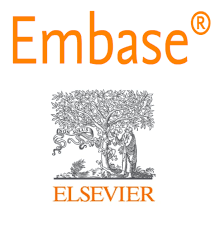Impact of Obesity on Pulmonary Function in Young Adult MBBS Students with Gender Differences
Keywords:
Obesity, Pulmonary Function, Spirometry, Medical Students, Gender Differences.Abstract
Background of the study: Obesity adversely affects various organ systems, including pulmonary function. This study aimed to assess the impact of obesity on pulmonary function in young adult MBBS students and evaluate gender differences in this association.
Methods: A cross-sectional study was conducted among 120 MBBS students aged 18–25 years at Government Medical College, Ongole. Participants were divided into three groups based on their Body Mass Index (BMI): normal weight (BMI 18.5–24.9), overweight (BMI 25.0–29.9), and obese (BMI ≥30.0). Pulmonary function was assessed through spirometry, which measured Forced Vital Capacity (FVC), Forced Expiratory Volume in one second (FEV₁), the FEV₁/FVC ratio, and Peak Expiratory Flow Rate (PEFR). The data were analyzed using SPSS software.
Results: The mean age was similar across BMI groups (21.4 ± 1.5 years), with no significant difference. BMI was significantly higher in the obese (32.8 ± 2.1 kg/m²) and overweight groups (27.1 ± 1.2 kg/m²) compared to controls (22.3 ± 1.4 kg/m²; p < 0.001).There is a significant decline in FVC, FEV₁, and PEFR with increasing BMI (p < 0.001), while the FEV₁/FVC ratio remained unchanged, indicating a restrictive pattern. Obese males had higher FVC and FEV₁ than obese females (p< 0.05), but PEFR and FEV₁/FVC were similar. There is a negative correlations between BMI and FVC, FEV₁, and PEFR, confirming reduced lung function with obesity. No correlation was found with the FEV₁/FVC ratio, supporting a restrictive impairment pattern.
Conclusion: Obesity negatively impacts pulmonary function among MBBS students, with more pronounced effects observed in males. Early lifestyle interventions are necessary to mitigate obesity-related respiratory decline.
.png)









